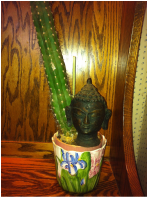Home Study Worksheets: MBI®
Greetings Mindful Students!
This is your Suggested homework for the upcoming weeks.
They are tools to help you progress in a meaningful way through the program. Remember, how much you do is completely between
you and You.
The MBI blogs are to be found on this website. Simply click on the link, provided. They will help you better understand and establish your practice. Some will be intriguing and some may be inspiring. Please enjoy them and feel free to look at the other blogs. Sign up if you would like to continue to receive them automatically, as they are being created.
This is your Suggested homework for the upcoming weeks.
They are tools to help you progress in a meaningful way through the program. Remember, how much you do is completely between
you and You.
The MBI blogs are to be found on this website. Simply click on the link, provided. They will help you better understand and establish your practice. Some will be intriguing and some may be inspiring. Please enjoy them and feel free to look at the other blogs. Sign up if you would like to continue to receive them automatically, as they are being created.
Week One; Suggested Practice MBI®
How to Begin your Meditation Practice
During the first two weeks, you will be establishing a practice pattern.
See about formal sitting meditation practice or Deep Body Healing three times per week. Even if you are an experienced meditator, please begin your sitting practice, with no more than 5 minutes. By the end of the second week, please refrain from doing any more than 15 minutes/ sitting.
Informal meditation is suggested for at least three occurrences a day. Choose a cue, such as getting into the car, answering your phone, or taking a sip of coffee or tea. Breathing into the belly, enter into your experience, without judgment or criticism.
Kindly allow yourself to rest here, for one breath cycle or two...
Listen to the Deep Body Healing Meditation by clicking on the arrow below..
How to Begin your Meditation Practice
During the first two weeks, you will be establishing a practice pattern.
See about formal sitting meditation practice or Deep Body Healing three times per week. Even if you are an experienced meditator, please begin your sitting practice, with no more than 5 minutes. By the end of the second week, please refrain from doing any more than 15 minutes/ sitting.
Informal meditation is suggested for at least three occurrences a day. Choose a cue, such as getting into the car, answering your phone, or taking a sip of coffee or tea. Breathing into the belly, enter into your experience, without judgment or criticism.
Kindly allow yourself to rest here, for one breath cycle or two...
Listen to the Deep Body Healing Meditation by clicking on the arrow below..

Week Two;
Suggested Practice MBI®
Getting to the Meditation Cushion;
Or Why I shouldn’t meditate...
This week, you have the opportunity to continue to establish your practice pattern.
1. As you move through your day simply notice when you think about meditating. Refraining from criticism or judgment, simply breath into the moment, right now.
You might enter into a friendly negotiation about when you will sit to meditate.
2. You may find it very helpful to create a beautiful space for your sitting practice.
Some people have flowers, incense, candles or some other object(s) of beauty.
Informing your dear ones that you will not be responding to requests for your attention is important. (If you have difficulty in letting a call, or a text go, leave your phone and computer behind when you sit).
3. See about formal sitting meditation practice or Deep Body Healing three times per week. Even if you are an experienced meditator, please begin your sitting practice, with no more than 5 minutes per sitting. By the end of the second week, please refrain from doing any more than 15 minutes.
4. Refraining from Striving, we practice as best we can and watch our process unfold with a Child’s Mind.
Suggested Practice MBI®
Getting to the Meditation Cushion;
Or Why I shouldn’t meditate...
This week, you have the opportunity to continue to establish your practice pattern.
1. As you move through your day simply notice when you think about meditating. Refraining from criticism or judgment, simply breath into the moment, right now.
You might enter into a friendly negotiation about when you will sit to meditate.
2. You may find it very helpful to create a beautiful space for your sitting practice.
Some people have flowers, incense, candles or some other object(s) of beauty.
Informing your dear ones that you will not be responding to requests for your attention is important. (If you have difficulty in letting a call, or a text go, leave your phone and computer behind when you sit).
3. See about formal sitting meditation practice or Deep Body Healing three times per week. Even if you are an experienced meditator, please begin your sitting practice, with no more than 5 minutes per sitting. By the end of the second week, please refrain from doing any more than 15 minutes.
4. Refraining from Striving, we practice as best we can and watch our process unfold with a Child’s Mind.
Click below to visit the blog page for help
with getting to the cushion!
with getting to the cushion!

Home Study Worksheet: Week Three
Suggested Practice MBI®
Working with the Mind:
Bow to Every Thought 2/17/13
Notice your thoughts and experiences, as if they were dear friends coming to see you. Acknowledge them lovingly. Invite them to sit quietly with you. Tell them you will come back to them soon.
Nurturing Your Mindfulness Practice:During the third and fourth weeks, you have the chance to nurture your young practice. Please read the blog listed above by simply clicking the button below.
See about formal sitting meditation practice or Deep Body Healing three to five times per week. By the end of the fourth week, please refrain from doing any more than 20 minutes.
Informal meditation is suggested for at three to four experiences a day. Informal meditation occurs is defined as, any time you focus on the breath.
Refraining from Judgment Criticism and Striving, we practice as best we can and watch the process unfold with a Child’s Mind.
Suggested Practice MBI®
Working with the Mind:
Bow to Every Thought 2/17/13
Notice your thoughts and experiences, as if they were dear friends coming to see you. Acknowledge them lovingly. Invite them to sit quietly with you. Tell them you will come back to them soon.
Nurturing Your Mindfulness Practice:During the third and fourth weeks, you have the chance to nurture your young practice. Please read the blog listed above by simply clicking the button below.
See about formal sitting meditation practice or Deep Body Healing three to five times per week. By the end of the fourth week, please refrain from doing any more than 20 minutes.
Informal meditation is suggested for at three to four experiences a day. Informal meditation occurs is defined as, any time you focus on the breath.
Refraining from Judgment Criticism and Striving, we practice as best we can and watch the process unfold with a Child’s Mind.

Home Study Worksheet:
Week Four
Suggested Practice MBI®
Cultivating a Child’s Mind: a morning cup
Develop an attitude of open curiosity toward all of your experience. See about expressing an interest in everything!
During the third and fourth weeks, you have the chance to nurture your young practice. Please read the blog listed above by simply clicking the link.
See about formal sitting meditation practice or Deep Body Healing three to five times per week. By the end of the fourth week, please refrain from doing any more than 20 minutes.
Informal meditation is suggested at three to four times a day.
Refraining from Judgment Criticism and Striving, we practice as best we can and watch the process unfold with a Child’s Mind.
Week Four
Suggested Practice MBI®
Cultivating a Child’s Mind: a morning cup
Develop an attitude of open curiosity toward all of your experience. See about expressing an interest in everything!
During the third and fourth weeks, you have the chance to nurture your young practice. Please read the blog listed above by simply clicking the link.
See about formal sitting meditation practice or Deep Body Healing three to five times per week. By the end of the fourth week, please refrain from doing any more than 20 minutes.
Informal meditation is suggested at three to four times a day.
Refraining from Judgment Criticism and Striving, we practice as best we can and watch the process unfold with a Child’s Mind.

Home Study Worksheet:
MBI® Week Five
Suggested Practice MBI®
Understanding Clinging
Greetings Mindful Students!
This is your Suggested homework for the upcoming week.
They are tools to help you progress in a meaningful way through the program. Remember, how much you do is completely between you and You.
The MBI blogs are to be found on the website. Simply click on the link, provided. They will help you better understand and establish your practice. Some will be intriguing and some may be inspiring. Please enjoy them and feel free to look at the other blogs. Sign up if you would like to continue to receive them automatically, as they are being created.
Understanding clinging: Refraining from attachment to anything from the last piece of chocolate cake to a certain job or a particular response from someone,causes us suffering. See about the practice of letting go, this week.
During the fifth and sixth weeks, you have the chance to truly enjoy the practice you have created. Please read the blog listed above to deepen your understanding, by simply clicking the link.
See about formal sitting meditation practice or Deep Body Healing four to five times per week. By the end of the sixth week, please refrain from doing any more than 30 minutes of formal sitting. Feel free to split your sitting into segments, such as 10 minutes before work and 10 minutes before sleep.
Informal meditation is suggested for no more that three to four meals a day.
Refraining from Judgment Criticism and Striving, we practice as best we can and watch the process unfold with a Child’s Mind.
- Explore something to give up with generosity of heart (an antidote to clinging)

Home Study Worksheet: Week Six
Suggested Practice MBI®
The Buddha and the Cactus
Working with difficult experience
Understanding aversion: Opening to difficult experience frees us from suffering, although it may not seem that way. When we refrain from labeling experiences and outcomes as “good” or “bad” we are free to be present to this moment and a deeply fulfilling life.
During the fifth and sixth weeks, you have the chance to truly enjoy the practice you have created. Please read the blog listed above to deepen your understanding, by simply clicking the link.
See about formal sitting meditation practice or Deep Body Healing four to five times per week. By the end of the sixth week, please refrain from doing any more than 30 minutes of formal sitting. Feel free to split your sitting into segments, such as 10 minutes before work and 10 minutes before sleep.
Refraining from Judgment Criticism and Striving, we practice as best we can and watch the process unfold with a Child’s Mind.
Suggested Practice MBI®
The Buddha and the Cactus
Working with difficult experience
Understanding aversion: Opening to difficult experience frees us from suffering, although it may not seem that way. When we refrain from labeling experiences and outcomes as “good” or “bad” we are free to be present to this moment and a deeply fulfilling life.
During the fifth and sixth weeks, you have the chance to truly enjoy the practice you have created. Please read the blog listed above to deepen your understanding, by simply clicking the link.
See about formal sitting meditation practice or Deep Body Healing four to five times per week. By the end of the sixth week, please refrain from doing any more than 30 minutes of formal sitting. Feel free to split your sitting into segments, such as 10 minutes before work and 10 minutes before sleep.
Refraining from Judgment Criticism and Striving, we practice as best we can and watch the process unfold with a Child’s Mind.
- Remember the diaphragmatic breath.
- See about opening to a difficult experience with lovingkindness and compassion.

Home Study Worksheet:
Week Seven Suggested Practice MBI®
Water and Stone 3/10/13
https://www.sagehealinginstitute.com/blog/water-and-stone
Mindful Relationship
Awareness of our relationships and how others affect us, is key to a mindful life. How we treat our bodies is intimately related to how others treat us.
During the seventh and eighth weeks, you have the chance to further deepen the practice you have created. Please read the blog listed above to deepen your understanding, by simply clicking the link.
See about formal sitting meditation practice or Deep Body Healing four to five times per week. By the end of the eighth week, please refrain from doing any more than 30 minutes of formal sitting. Feel free to split your sitting into segments, such as 10 minutes before work and 10 minutes before sleep.
Refraining from Judgment Criticism and Striving, we practice as best we can and watch the process unfold with a Child’s Mind.
Week Seven Suggested Practice MBI®
Water and Stone 3/10/13
https://www.sagehealinginstitute.com/blog/water-and-stone
Mindful Relationship
Awareness of our relationships and how others affect us, is key to a mindful life. How we treat our bodies is intimately related to how others treat us.
During the seventh and eighth weeks, you have the chance to further deepen the practice you have created. Please read the blog listed above to deepen your understanding, by simply clicking the link.
See about formal sitting meditation practice or Deep Body Healing four to five times per week. By the end of the eighth week, please refrain from doing any more than 30 minutes of formal sitting. Feel free to split your sitting into segments, such as 10 minutes before work and 10 minutes before sleep.
Refraining from Judgment Criticism and Striving, we practice as best we can and watch the process unfold with a Child’s Mind.
- Remember the diaphragmatic breath.
- Notice when you eat forgetfully.
- See about opening to a difficult person with lovingkindness and compassion. (This does not mean agreeing to let anyone treat you badly)

Home Study Worksheet: Week Eight
Suggested Practice MBI®
Just Like Me
What would happen if we recognized each other as human beings? What if we felt a sense of community and one-ness?
Here is an opportunity to notice how we distance ourselves from others by criticizing, especially in terms of appearance.
During the seventh and eighth weeks, you have the chance to further deepen the practice you have created. Please read the blog listed above to deepen your understanding, by simply clicking the link.
See about formal sitting meditation practice or Deep Body Healing four to five times per week. By the end of the eighth week, please refrain from doing any more than 30 minutes of formal sitting. Feel free to split your sitting into segments, such as 10 minutes before work and 10 minutes before sleep.
Refraining from Judgment Criticism and Striving, we practice as best we can and watch the process unfold with a Child’s Mind.
Suggested Practice MBI®
Just Like Me
What would happen if we recognized each other as human beings? What if we felt a sense of community and one-ness?
Here is an opportunity to notice how we distance ourselves from others by criticizing, especially in terms of appearance.
During the seventh and eighth weeks, you have the chance to further deepen the practice you have created. Please read the blog listed above to deepen your understanding, by simply clicking the link.
See about formal sitting meditation practice or Deep Body Healing four to five times per week. By the end of the eighth week, please refrain from doing any more than 30 minutes of formal sitting. Feel free to split your sitting into segments, such as 10 minutes before work and 10 minutes before sleep.
Refraining from Judgment Criticism and Striving, we practice as best we can and watch the process unfold with a Child’s Mind.
- Remember the diaphragmatic breath.
- Notice when you eat forgetfully.
- As you travel throughout your day, notice someone and find something in common, however small. “Just like me that person wants to get lunch. Or Just like me that person doesn’t like getting wet in the rain.” Breath with this experience and notice less alienation and more of a sense of one-ness with other sentient beings!
Additional Bibliography
The SAGE Healing Institute
For Mind Body Intelligence
A division of PSYCARE SOLUTIONS INC.
Suite 12 Briar House
8302 Old York Road
Elkins Park, PA 19027
215-885-9700
References:
Adelman, E.M. Mind Body Intelligence: A new perspective integrating Eastern and Western healing traditions. J. Holistic Nursing Practice,May/June, 2006;147-151
Antoni, M., Cruess, D., Klimas, N., et al. Stress Management and Immune System Reconstitution in Symptomatic HIV-Infected Gay Men Over Time: Effects on Transitional Naive T Cells (CD4+CD45RA+CD29+). Am J Psychiatry. 2002; 159 January: 143-145.
Apichartpiyakul, C., Sakonwasun, C., Aruncharus, P. Effect of Buddhist meditation on the T lymphocyte subpopulation. Chiang Mai Med Bull 2004; 43 (4): 163-168.
Block, K., Boyd, D., Gonzalez, N., et al. The Immune System In Cancer. 294 Integrative Cancer Therapies. 2002; 1(3): 294-316.
Chodron, P. The Wisdom of No Escape. Boston: Shambala Press; 1990.
Chodron, P. Start Where You Are. Boston: Shambala Press; 1994.
Cohen, Kenneth, The Way of Qigong, The Art and Science of Chinese Energy Healing, New York: Ballantine Books, div. of Random House Inc., 1997.
Grossman, P., Niemann, L., Schmidt, S., et al. Mindfulness-based stress reduction and health benefits A meta-analysis. Journal of Psychosomatic Research. 2004; 57:35-43
Hidderley, M., Holt, M. A pilot randomized trial assessing the effects of autogenic training in early stage cancer patients in relation to psychological status and immune system responses. European Journal of Oncology Nursing. 2004; 8:61-65.
Kabat-Zinn, J. Full Catastrophe Living. New York: Bantam Doubleday Dell Publishing; 1990.
Kemp C., Qigong as a Therapeutic Intervention With Older Adults Journal of Holistic Nursing. 2004; 22(4): 351-373
Levine, S. Who Dies? An Investigation of Conscious Living and Conscious Dying. New York: Doubleday; 1982
Pert, C., Dreher, H., Ruff, M. The Psychosomatic Network: Foundations of Mind Body Medicine. Alternative Therapies.1998; 4 (4): 30-41.
Reibel, D. Greeson, J., Brainard, G., Rosenzweig, S. Mindfulness-based stress reduction and health-related quality of life in a heterogeneous patient population. General Hospital Psychiatry. 2001; 23:183-192.
Rubin, J. Psychotherapy and Buddhism: Toward an Integration. New York: Plenum Press; 1996
Safran, J. Introduction: Psychoanalysis and Buddhism as Cultural Institutions. In: Safran, J., ed. Psychoanalysis and Buddhism an Unfolding Dialogue, 1rst ed. Massachusetts: Wisdom Publications; 2003: 1-34.
Speca, M., Carlson, L., Goodey, E., et al. A Randomized, Wait-List Controlled Clinical Trial: The Effect of a Mindfulness Meditation-Based Stress Reduction Program on Mood and Symptoms of Stress in Cancer Outpatients
Psychosomatic Medicine. 2000; 62:613-622
Stenlund, T., Lindstrom, B., Granlund, M., Burell, G.
Cardiac Rehabilitation For The Elderly: Qi Gong and group discussions. European Journal of Cardiovascular Prevention &
Rehabilitation. 2005; 12(1): 5-11.
Tsujiuchi, T., Kumano H., Yoshiuchi, K., et al
The Effect of Qi-Gong Relaxation Exercise on the Control
of Type 2 Diabetes Mellitus. A randomized controlled trial
Diabetes Care. 2002; 25:241-242.
